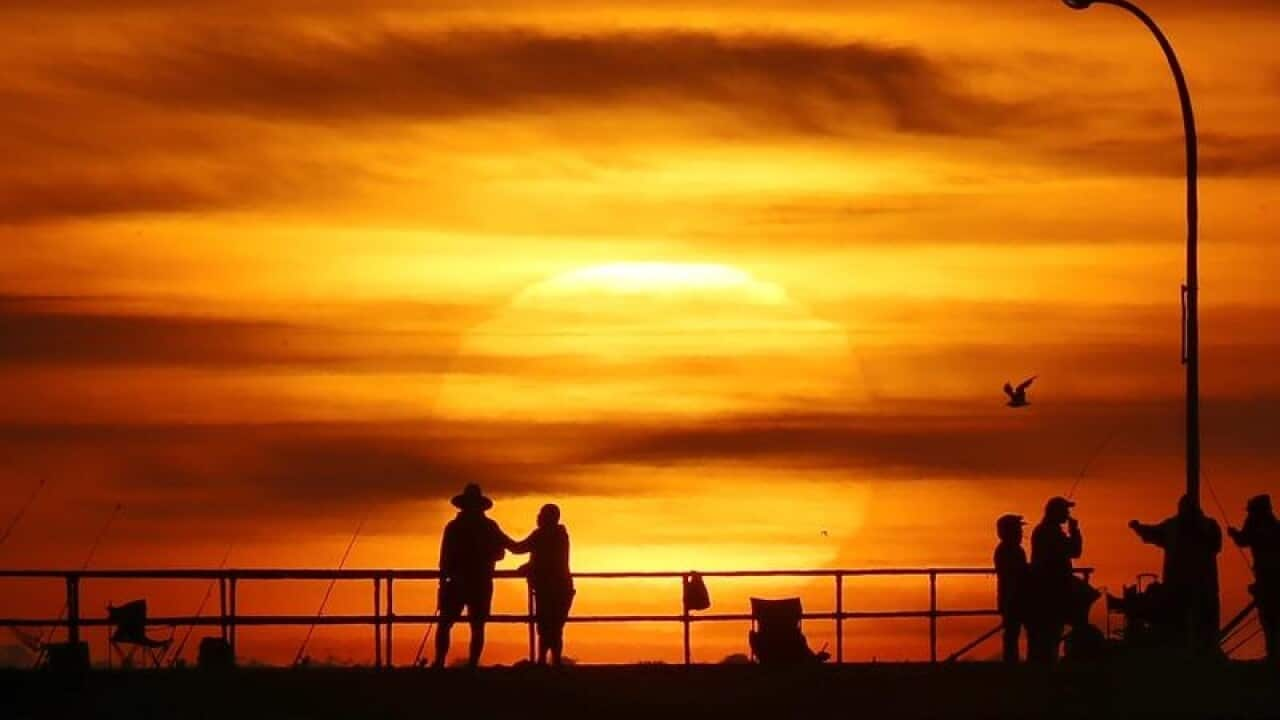Nobody would blame people for , but research has shown Australia’s reliance on artificial cooling is changing the way we live our lives - and making us socially isolated.
The research from Western Sydney University, published in Human Ecology Review, found that as temperatures soar, livability is compromised - especially for those who cannot access or afford air conditioning.
But while air conditioning is improving our quality of life in some ways, it has also had some unexpected consequences. “What we found was people’s activities and mobility patterns were very much shaped by where air conditioning is available,” researcher Dr Louise Crabtree from the Institute for Culture and Society told SBS News.
“What we found was people’s activities and mobility patterns were very much shaped by where air conditioning is available,” researcher Dr Louise Crabtree from the Institute for Culture and Society told SBS News.

The hot weather is changing the way we live our lives. Source: AAP
According to the research, which interviewed Western Sydney residents, people with air conditioning were more likely to stay inside and “in a cocoon of thermal comfort”, creating a more sedentary lifestyle with less socialising.
Meanwhile, for people without access to air conditioning at home, whether due to running costs or because they were renting, the situation was even worse.
“We were hearing stories of people who said they just found the coolest room in the house and just laid still for hours,” she said.
“So they’re not socialising, they are not able to get anywhere and potentially could be missing appointments or job interviews and all sorts of things that can be impacted if people simply can’t leave the house because they are going to be at risk of extreme heat exposure.”
She also said that while we had become reliant on air conditioning, outdoor infrastructure to beat the heat - such as public water and shady places to rest - has suffered.
“New houses in Western Sydney, as all around Australia, are being designed around air-conditioning to deliver thermal comfort,” she said.
“This leads to a perceived need for less publicly accessible infrastructure, which then exacerbates the problem.”
She said urban planning needed to focus on two things: making public destinations cooler, as well as making sure there is a way to get there that is safe - such as planting trees to shade pathways or installing outdoor cooling stations, like misters.
“So people can get out of their home in a way that is safe and cool, but doesn’t necessarily involve spending money like at shopping centres,” she said.
“It involves thinking through destinations and how people get to those destinations.”
, the research found that for many Western Sydney residents, shopping centres and fast-food restaurants were the only places where people were able to get out of the house, but remain in air conditioning.
The research comes as Sydney is facing 50 degree summer days becoming a common occurrence by 2040, while other metropolitan areas set to reach this even sooner. Dr Crabtree said as the environment heats up, there needs to be a proactive push to build infrastructure that can cope with extreme heat, without relying on air conditioning which contributes to global warming, makes the area outside the home hotter and is unaffordable for many.
Dr Crabtree said as the environment heats up, there needs to be a proactive push to build infrastructure that can cope with extreme heat, without relying on air conditioning which contributes to global warming, makes the area outside the home hotter and is unaffordable for many.

A NSW highway melts during extreme heat. Source: Facebook
In Western Sydney, - with these “hot spots” often coinciding with low socioeconomic areas. This is because greener suburbs, which are cooler due to tree cover, are often seen as more desirable, pushing up the market value.
“You can see this interplay between a range of social and physical and economic factors all compounding to make this perfect storm where you can end up with very hot, exposed landscapes with poor public transport connectivity,” Dr Crabtree said.
“People will be literally trapped inside their homes because they can’t get out into somewhere cool.”









